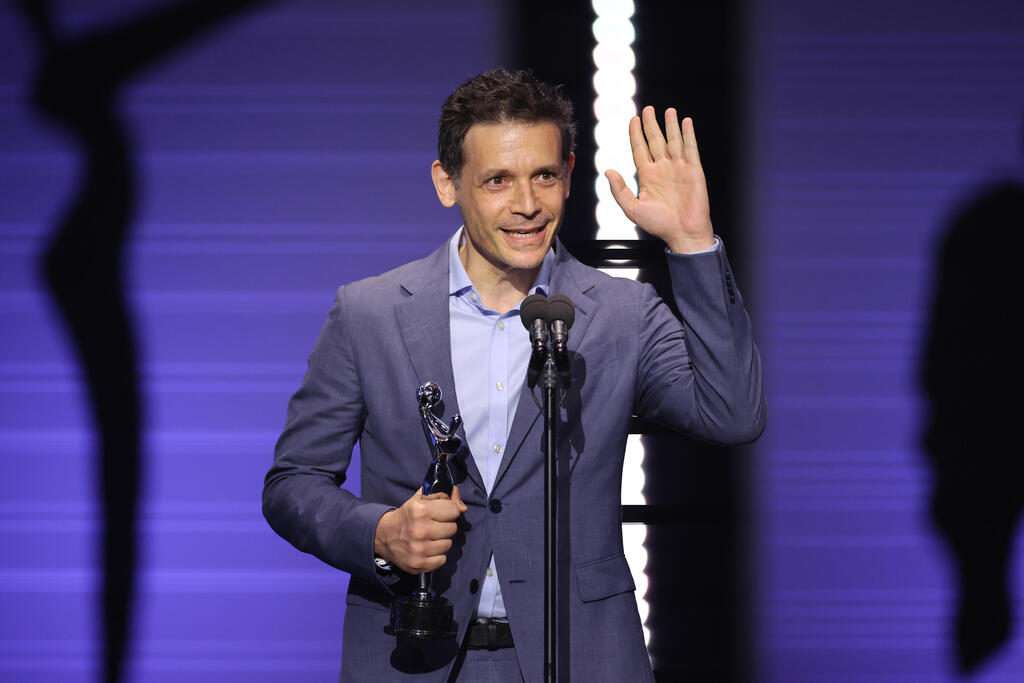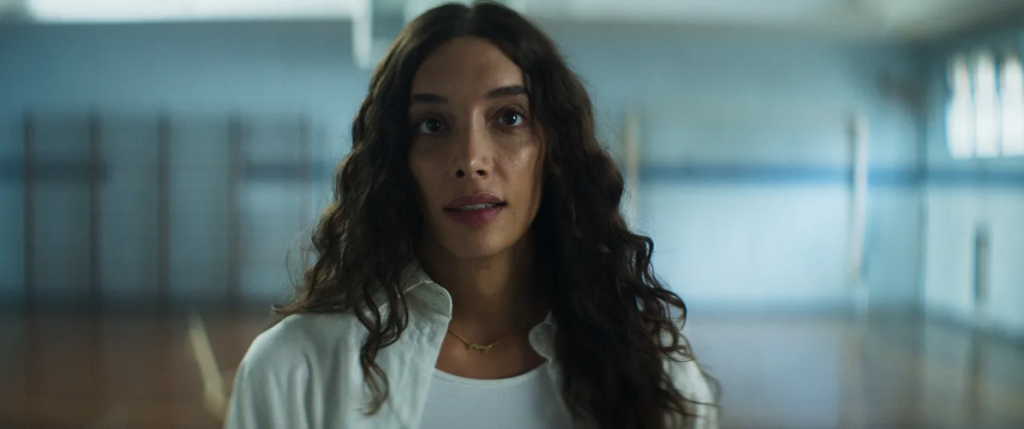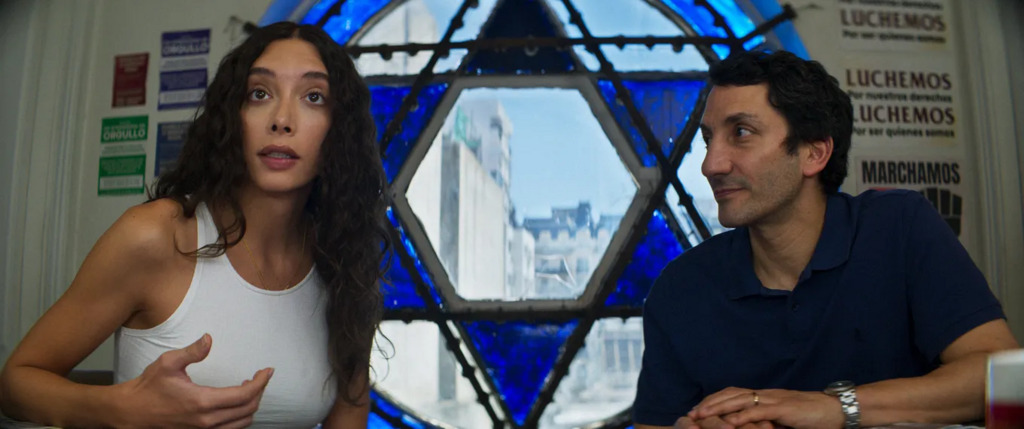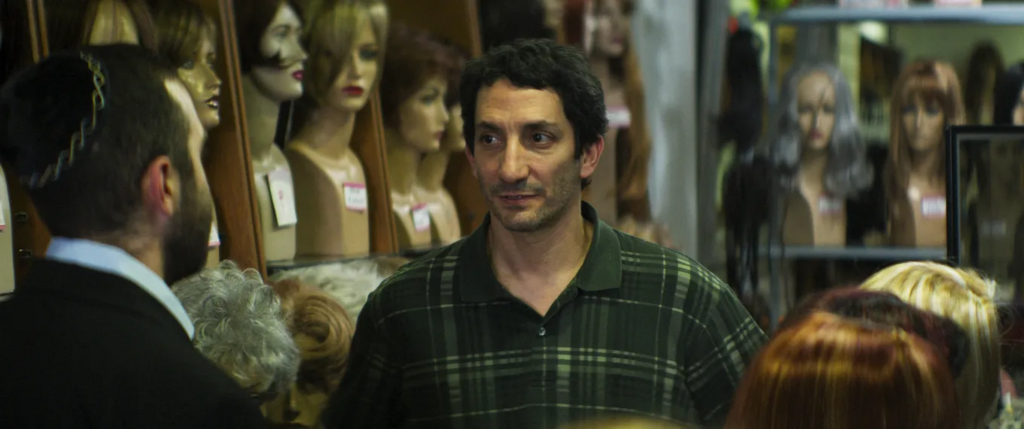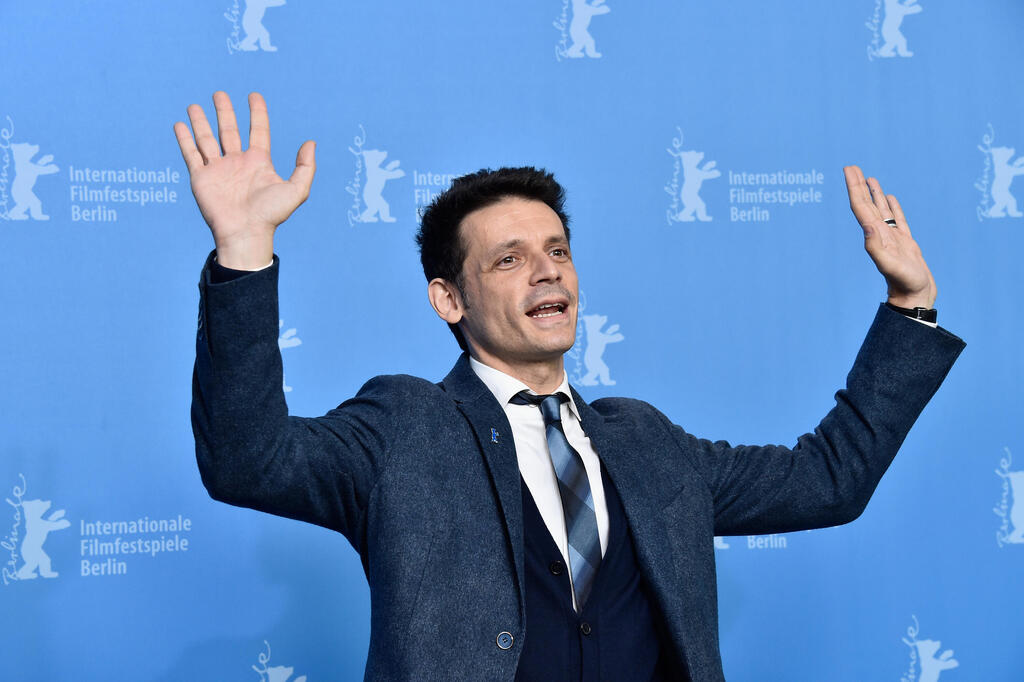Getting your Trinity Audio player ready...
As Emilia Perez dominates screens and emerges as a strong Oscar contender, Netflix is now debuting another Latin American film centered on a striking transgender protagonist: Transmitzvah. This time, it’s the story of a “kosher diva.”
Mumy Singer, a famous Jewish transgender singer, returns to Buenos Aires after years of estrangement from her family to celebrate the bat mitzvah she never had. Once, in Argentina, Mumy was a child named Rubén, who refused to have a bar mitzvah, longing instead for a bat mitzvah.
The film, directed by Jewish-Argentinian filmmaker Daniel Burman, premiered at the recent Cannes Film Festival, where it was acquired by the streaming giant. Cannes organizers chose to hold the film’s out-of-competition debut on the beach, under the open sky.
It was a quirky, joyous and surreal experience to watch a film blending drag, transgender identity, Hebrew phrases, Yiddish songs, Jewish humor and cultural nuances on a giant screen in such a setting.
“In a way, it’s very brave of the [festival organizers] to screen a Jewish film like this, in the open air,” said Burman in an interview with Ynet, conducted poolside at a luxury hotel in the French resort town. “In that sense, I like the idea of showing it on the beach—it’s a nice gesture.
“I’m very proud, as a Jew, to present now, in Europe, in the center of antisemitism in the world, a Jewish movie with Yiddish songs. I love Yiddish culture, I wrote two of the songs,” he added.
“For me, it's very moving. To be here and say, ‘Yes, I am a Jew from the Diaspora, and I have this Jewish story.’ I had a few interviews where they asked me if I feel uncomfortable being a Jew right now, and I said, ‘I’ve never been more proud to be a Jew. You have a problem to be sitting with a Jew, not me.’”
Burman also has criticisms of the global media, including its coverage of the Hamas attack on October 7. “I can’t believe how the media compare the human tragedies. This is like a movie where they delete some sequences that they don't like in the middle. The fact that a group of people used their penises as weapons… killing a woman simply for being a Jew, with a penis used as a gun, it’s not a small detail, and I can’t believe it. You can discuss the policy of Israel with Gaza and the Palestinians, but I can’t believe how they consider this an act of resistance. I am completely shocked by this narrative and the silence of all the progressives and intellectuals about this. I prefer to hear them say, ‘we’re probably antisemitic and we don’t care about Jewish women,’ over their silence because silence is much more violent.”
When I ask what draws a straight, Jewish guy like Burman to a film as campy, wild, colorful and Almodóvar-esque as Transmitzvah, he bursts out laughing. “I don't know. I am a father of five (aged between two months and 21). I’m a little obsessed with how all this political correctness we've been living through in recent years has made our children focus on their gender identity as the only facet of their identity. It’s like your identity is only your gender.
"[With Transmitzvah,] I wanted to be a little bit provocative and put in the main role a woman who is undergoing a transition—from boy to woman—and she goes through a secular journey after her identity. Her gender and sexual identity aren’t in conflict.
“When you watch a movie with a trans woman, every conflict that she has in the movie is because she’s a trans woman. In general, when they show you a person from a certain diversity group, all their problems and all their conflicts have to do with their identity. But that’s not how it works in real life.”
So did you research the world of trans women?
"Of course. I did a big show for TV several years ago named Pequeña Victoria (Victoria Small)—It's a soap opera with a transgender woman at the center, so I did a lot of work. But also for Transmitzvah, from the actress, Penélope Guerrero, a transgender woman, I learned a lot and listened to all her advice. I was very careful with that."
What does your psychologist say about the fact that you’ve now done two projects about transgender people?
"My Shrink? Nothing," Burman says, laughing, "but my eldest son always says, 'everyone is a trans human being, we're all in transition all the time. I've really empathized with all the transgender people I’ve worked with, and I want to make content putting trans people in the center—but also doing other stuff, not the classic ‘trans’ tropes.”
Burman adds that in Argentina, some children from Jewish families celebrate their bar or bat mitzvahs in gender-neutral “Transmitzvah” ceremonies, called “B-mitzvah” or “bnei mitzvah.”
And how did you celebrate your bar mitzvah?
“I celebrated at Ebraica, a Jewish club in Buenos Aires that’s mentioned in Transmitzvah. I come from a low socioeconomic background, so I shared a party with other Jewish boys in my age group. My family couldn’t afford a party just for me. We even shared the candles—13 candles for everyone. My strongest memory of my bar mitzvah is ripping my pants in the middle of the ceremony, and my mom sewing them up in the bathroom. I’ll never forget her voice saying, ‘Stay quiet, I’ll be done in two minutes.’”
Why doesn’t Transmitzvah have any sex scenes?
“That’s a great question. In films featuring a transgender character, it’s common to include a sex scene tied to an identity conflict. That’s become a cliché, and I didn’t want to go there. The protagonist of Transmitzvah has no issues related to her sexuality—her conflict is about heritage. In a way, it’s very modern not to include a clichéd sex scene. It’s not that I forgot to add sex scenes; it was a conscious decision.”
'October 7 was a total shock for all of us'
Burman, 51, was born to a Jewish family in Buenos Aires. His grandparents emigrated to Argentina from Eastern Europe. “I’m a mix of Poland and Russia. It’s a good combination,” he jokes.
After studying law, Burman transitioned to filmmaking and founded a production company. His early films, produced in the first decade of the 21st century, featured autobiographical elements and explored the Jewish experience in the Argentine capital. Burman often portrayed neurotic characters, earning him the nickname “the Woody Allen of South America.”
His 2004 film Lost Embrace, about a young Jewish man grappling with why his father left the family to fight in the Six-Day War, won the Silver Bear at the Berlin International Film Festival. Another of his films, La Familia, which delves into a crisis faced by a Jewish law professor married to a non-Jewish woman, was selected as Argentina’s submission for Best Foreign Film at the 2006 Academy Awards.
A year later, Burman filmed The Empty Nest in Israel, including scenes at the Dead Sea. The film tells the story of a Jewish-Argentine couple visiting their daughter, who married an Israeli and lives in Arad.
“The essential question in my life and my films is the question of identity—I’m always trying to understand what we’re doing here and who we are,” Burman admits. “Transmitzvah, for example, is a story about identity and family. It explores the idea that as a child, you’re not truly living. When I was a child, I wasn’t a ‘child’; I was someone dreaming of being ‘someone.’”
Who is that ‘someone’?
“I suppose someone like me today, someone who tells stories. It’s through storytelling that I find my identity.”
Burman frequently visits Israel (“I have many relatives and friends there”) and has often showcased his films at the Haifa International Film Festival. “In the original script for Transmitzvah, the characters ended their journey by meeting a rabbi in the city of Safed. But then October 7 happened—it was a total shock for all of us—so I rewrote the script, and we moved the final scenes to the city of Toledo in Spain,” he revealed.
Get the Ynetnews app on your smartphone: Google Play: https://bit.ly/4eJ37pE | Apple App Store: https://bit.ly/3ZL7iNv
In recent years, Burman has focused more on television, including directing the series Yosi, the Regretful Spy, a spy drama starring Natalia Oreiro. The series follows a secret agent sent by the federal police to infiltrate Argentina’s Jewish community, gathering intelligence that may have been used to carry out the 1990s terror attacks on the Israeli Embassy and the AMIA Jewish Community Center.
The series, which premiered on Amazon Prime Video in 2023, also featured Israeli actors Itzik Cohen (“I adore him—he’s a wonderful and kind person,” Burman added) and Moran Rosenblatt.
“Yosi, the Regretful Spy is one of the most important projects of my life,” Burman says. “When we began working on it four years ago, we thought a series about antisemitism might feel outdated, like we were addressing the past. But the series was a huge success in Argentina and even awakened the consciences of many people who suddenly realized that antisemitism still exists. After October 7, there’s no doubt antisemitism is a fundamental issue—the very concept of ‘the Jew.’”
In Transmitzvah, it’s said that Jews feel very safe in Argentina.
“Yes, but I wrote the script for Transmitzvah before October 7. Since then, we’ve started seeing more antisemitism—things we hadn’t seen before—but compared to many other parts of the world, Argentina is a paradise. When I visit Europe, I realize Argentina is truly the safest place for Jews. I never would have believed I’d physically experience the kind of fear I feel in Europe now. It’s not an intellectual fear—it’s a visceral, bodily fear.”


